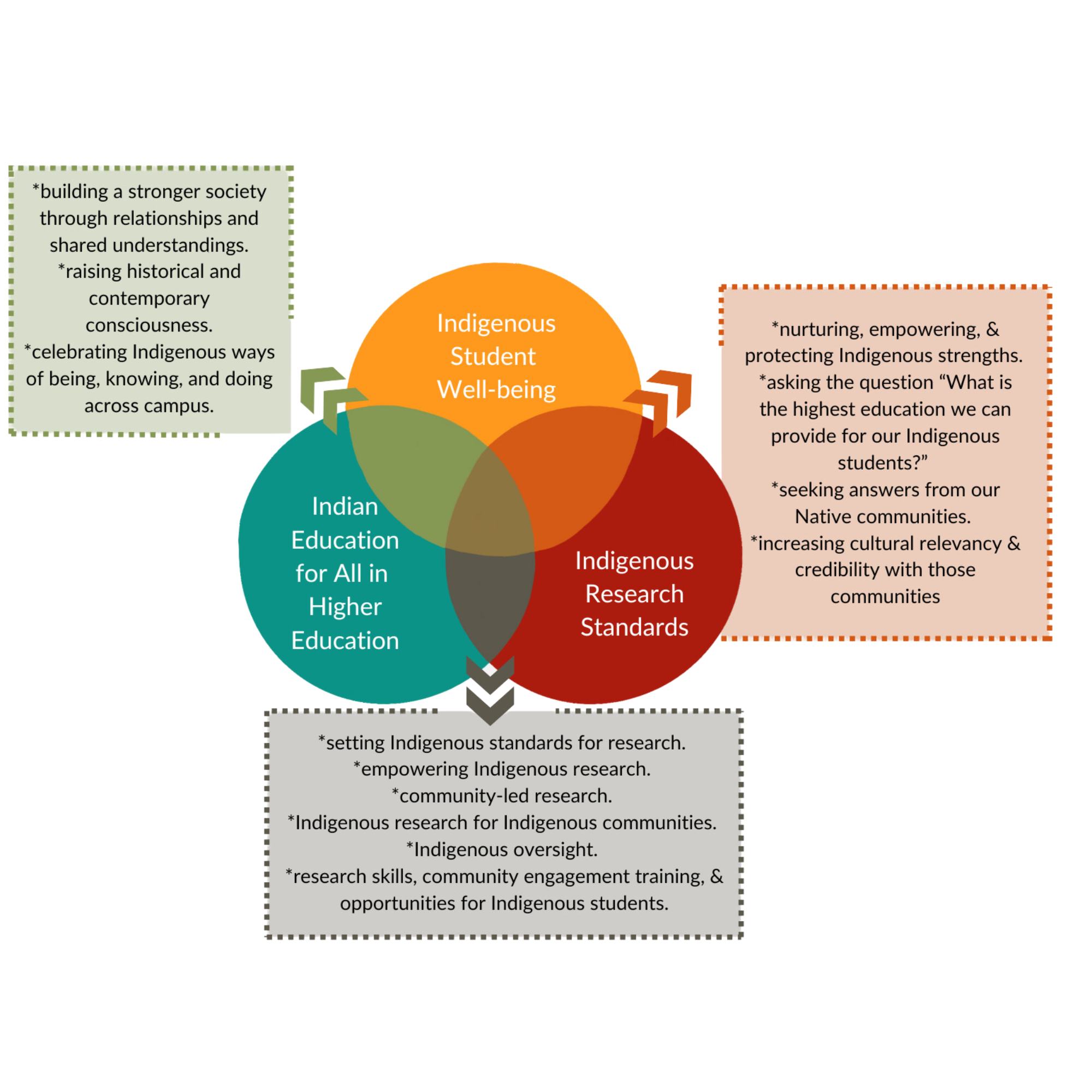Our Indigenous Research Standards
Updated: August 2024
The following guide is intended to assist MSU faculty, staff, and students as we foster and facilitate working relationships in Montana Indian Country. This guide was originally developed through the work of former NAS Katz Chair Bill Yellowtail during his service to the Office of the President as MSU Director of Tribal Partnerships (2011). Bill developed this guide after having travelled through Montana in the autumn of 2011 to interview Tribal Council and Tribal College leaders regarding their protocols and preferences concerning research relationships with MSU. We strive to uphold these and other Indigenous research ethics as they are consistently expressed by tribal leadership, tribal colleges, and Native communities:

- The university must operate within priorities and needs that originate from Indian
Country.
At minimum, tribes and tribal colleges expect MSU faculty/staff/students to consult with them sufficiently prior to proposal-writing to ensure that any initiative affecting their communities can be measured against local priorities. Last-minute requests for tribal endorsement will not be favored.Most tribes and tribal colleges have strategic plans which designate priorities for their communities and programs. Given an opportunity, tribal entities may become proactive in initiating invitations for MSU engagement. - Native communities’ capacity to determine and execute their own futures is paramount.
MSU should focus on outreach and research that will enhance, in a lasting way, the tribes’ ability to plan, research, develop and administer their own programs. - Tribal entities are ready for and interested in real partnerships rather than one-way,
transactional relationships.
Representatives of MSU should look for opportunities to work with Indigenous research partners to develop Tribal community-led agreements for articulation, research or service that define respective roles and expectations. - MSU researchers should pursue initiatives that result in durable outcomes - and relationships.
While the transient nature of some funding sources is a recognized reality, priority must always be given to relationships that are dependable and lasting. Tribes and tribal colleges are less interested in short-term commitments characterized by sporadic visits at the convenience of MSU personnel. - Tribal and/or tribal college research regulations require strict compliance.
Most tribes and/or tribal colleges have Institutional Review Boards. MSU researchers must be certain to understand and comply with each tribe’s regulatory process. The MSU Office of Sponsored Programs has information regarding specific Montana tribal IRBs.In addition, The Rocky Mountain Tribal Leaders Council has an approved IRB that may apply when a tribal IRB does not exist or when research involves more than one Montana tribe. - Tribes and tribal colleges require respect for their intellectual property.
Ownership of MSU-sponsored research products involving tribal people or resources should be considered and resolved in agreement with tribal authorities before research commences. Matters like data collection, data repository, research publication, and the like. must be specified. Joint authorship with Indigenous knowledge holders and/or research partners is highly valued. - Tribes, tribal colleges and Indigenous-led organizations expect equitable treatment
in fiscal matters.
Whenever possible, MSU grant development – regardless of subject matter – should include Indigenous leadership (faculty, staff, or community-based research partners) so that Tribal perspectives are represented. For initiatives involving Native communities, funding must be equitable, with a 50/50 budgetary split considered minimum. Project leadership should consider whether the lead awardee should be the tribal partner (whether Native nation, tribal college, or Indigenous-led organization), with subaward(s) going to MSU. Finally, most tribes, tribal colleges, and Indigenous-led organizations have approved indirect cost rates that apply to grants that involve tribal participation.
